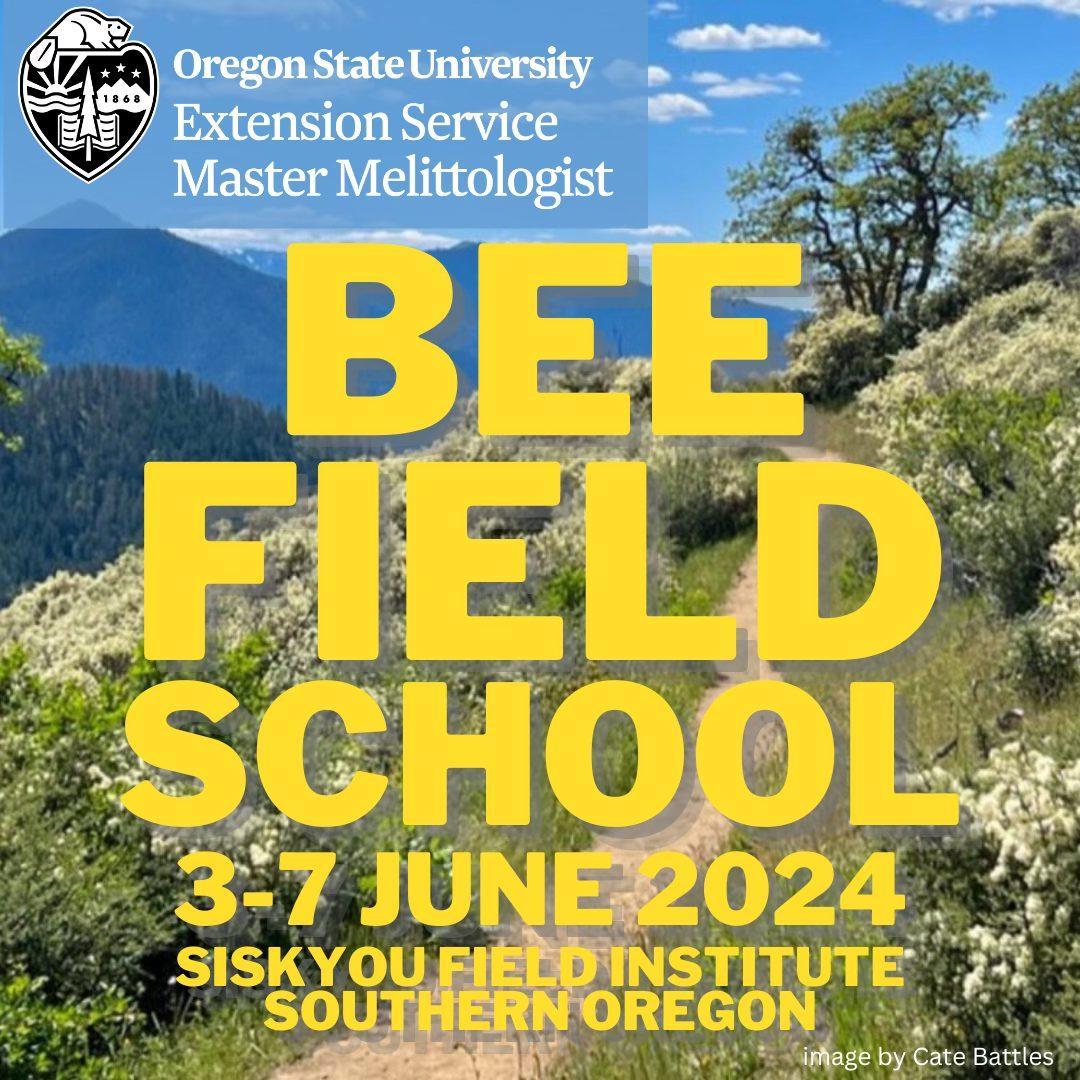2024 Oregon Native Bee School
Course Description:
The course introduces data collection, survey methods, and trade-offs in experimental design. We will visit field sites which host endemic plant species and their native bee visitors. We will document native bees with specialized relationships to their native plant hosts. Afternoon and evening sessions will focus on bee identification in the lab.
When:
This is a 5-day field course June 3-7, 2024. Participants may arrive at the location Sunday, June 2nd at 4:00pm. Instruction will begin the morning of Monday, June 3rd at 9:30 and the course runs through Friday, June 7th at 4:00 pm.
Where:
This field course is hosted at the Siskiyou Field Institute (SFI) in Selma, Oregon. Field sites are located within 15-30 min drive of the SFI in the vicinity of $8 Mountain and the Illinois River Valley.
Registration:
Base fee: $500
The base registration fee covers instruction, facility access, entomological equipment, and course manual.
Additional fees for lodging:
- Yurt - $100 ($20 per night)
- Tent camping - $75 ($15 per night)
- Indoor lodging (choice of styles) - $225 ($45 per night)
Accommodations:
Accommodations are not included in the base registration fee, but accommodations at the Institute can be booked during registration. There is unlimited camping available, 18 bunks in the heated yurt, and 8 beds indoors shared among 4 bedrooms. The SFI has a large kitchen and fridges for use by all course participants. Participants are welcome to find alternative accommodations locally.
What to Expect:
The course includes field trips, laboratory sessions, and lectures. Course participants will carpool to field sites. Microscopes will be provided but participants are encouraged to bring their own microscope and light source if they wish. This course requires fieldwork and physical activity. Participants will be required to travel slowly for short distances over uneven terrain.
What to Bring:
Participants should come prepared with field attire including appropriate footwear, and clothing for highly variable weather. General field equipment such as nets, traps, and collection vessels will be provided. Participants are encouraged to bring notebooks, writing utensils, and a laptop or tablet.
